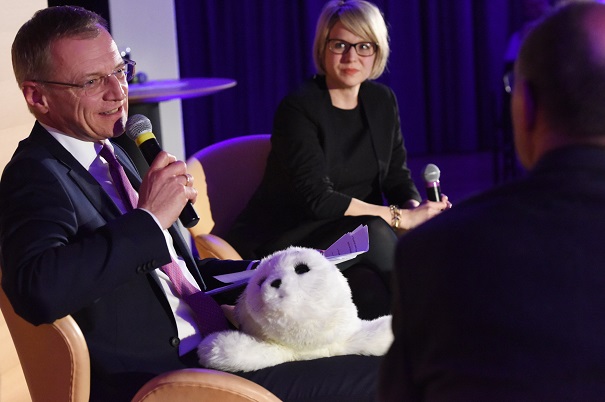Governor Thomas Stelzer kicked-off a new information campaign at the Johannes Kepler University.

Gazing into a crystal ball: As governor, Stelzer wants to know: "What will the future bring?" Gov. Stelzer moderated a panel discussion at the new Faculty Lounge at the JKU’s Uni Center featuring two JKU experts, top researchers Martina Mara and Gerhard Widmer.
Martina Mara’s plush baby seal, "Paro", was also on hand. Paro is an AI product created in Japan designed to help dementia patients. Do AI objects like "Paro" have actual feelings? "They only have simulated feelings," said Mara. They can also simulate our prejudices, "…because they have been programmed with human-made data." What can happen when, for example, we look at a Google translation featuring Turkish information. When given variations for “he is a doctor / she is a doctor”, the computer only spits out the male version. This brings Gov. Stelzer to question the limits of research. For Mara, for example, commented, "…that we should not build machines that replace people with activities that require social emotions."
Gerhard Widmer feels a pull to the limits of research. The Wittgenstein Award Winner did not have a "Paro" in tow, but rather an intelligent piano made of Legos programmed to play a variety of little compositions. Widmer conducts research on musical machines. Thanks to "artificial intelligence", he and his team analyze thousands of compositions on statistical properties and put them together according to their "own notes". However, these little clay machines lack dramatic structure and have little expression. Machines can simulate but lack the ability to create.








